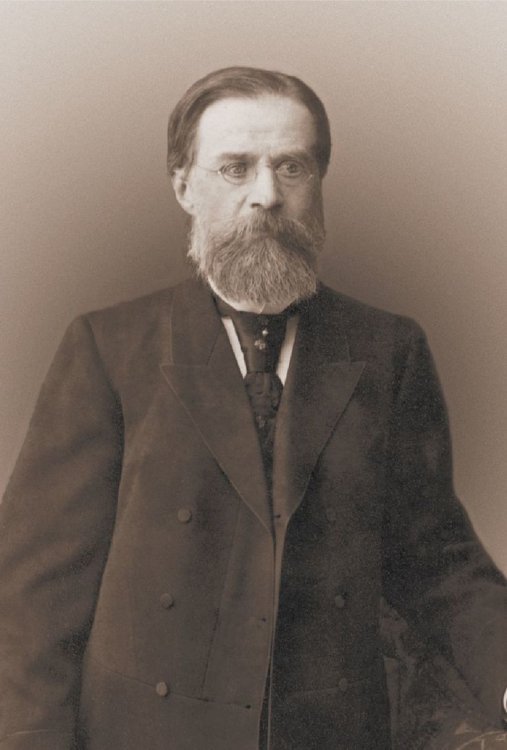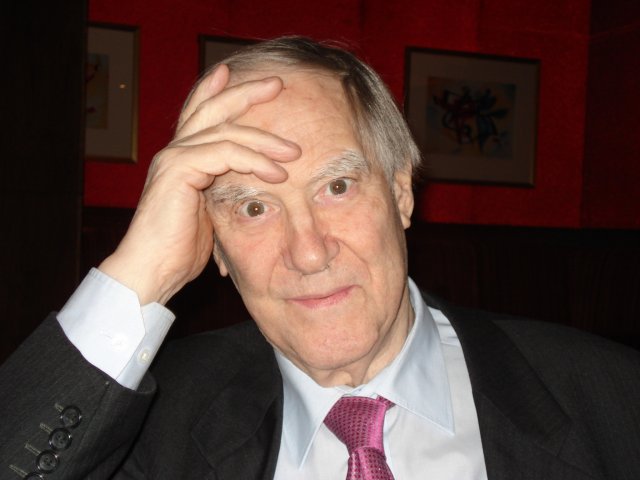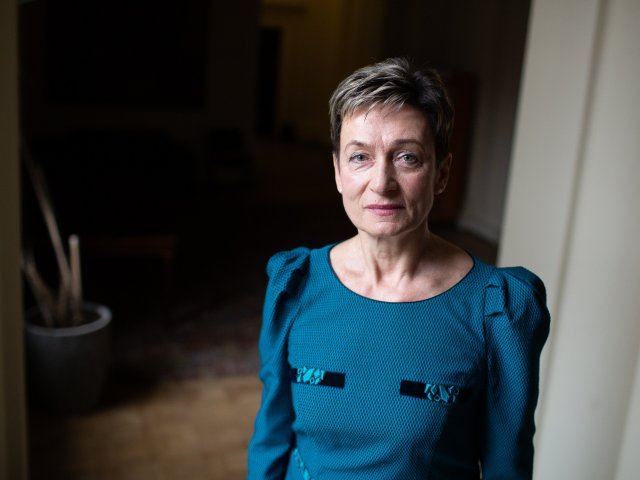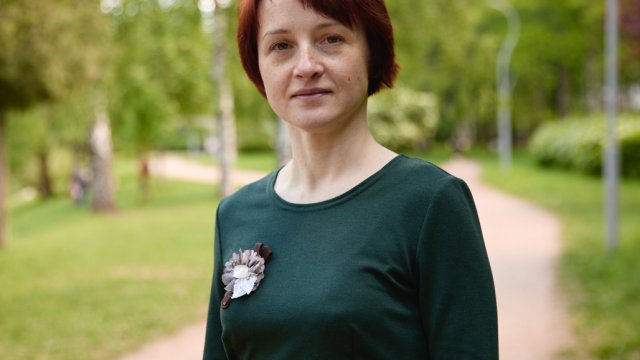Official:
Aleksandr Grigorievich Stoletov. 29 July (10 August) 1839 – 16 (28) May 1896. Russian physicist, distinguished professor of Imperial Moscow University. He who turned the light into electricity.
Life and Work:
1. At the Second International Electrical Congress held in Paris, Aleksandr Stoletov was received as one of the most prominent physicists of the world and elected Vice President. Well-deserved, no doubt: Stoletov worked in the field of electromagnetism, optics and molecular physics, built the curve of the magnetic permeability of ferromagnetics, established the photoelectric effect laws and built the first solar cell – a device that converts the energy of light directly into electricity.
2. Aleksandr Grigorievich Stoletov dedicated his entire life to science in a way that he did not have time even to marry. It was him who founded the first true laboratory of physics in Russia. Before Stoletov set up and equipped the laboratory at Moscow University, Russian scientists had to conduct research abroad.
3. The future outstanding Russian physicist was born into a merchant family in Vladimir. The boy was sickly and early learnt to read thanks to parents who had a very good library.
4. Stoletov did not find his path to physics right away. During his study at a gymnasium, he became addicted to literature and even published a handwritten magazine where he presented his own novel. Aleksandr studied music together with his sister and it mesmerized the future scientist to the point where he nearly decided to become a professional musician.
5. But natural sciences nevertheless won – after graduation from the gymnasium summa cum laude, Aleksandr Stoletov was admitted to the Faculty of Mathematics and Physics of Moscow University at the government expense.
6. Stoletov graduated from the university with honors, too. The faculty administration put in a word to keep the future outstanding scientist at the university for professorship preparation.
7. Back then, the university employees, Sergey Rachinsky and Konstantin Rachinsky, founded a scholarship of 1,000 silver rubles per year from their own salary “to send young researchers abroad for advanced training in mathematical and natural sciences at the direction of the Faculty of Mathematics and Physics.” In 1862, Stoletov was fortunate enough to earn a scholarship to go to Kirchhoff’s laboratory in Heidelberg, to Weber’s laboratory in Göttingen, to Magnus’s laboratory in Berlin to work as an intern. During his foreign internship, Aleksandr Grigorievich attended lectures delivered by the renowned physicists in Sorbonne.
8. In 1871, Stoletov again went abroad to Kirchhoff’s laboratory where he worked on his doctoral thesis, titled “Research on the Magnetization Function of Iron” he defended in April 1872. Kirchhoff named Stoletov the most talented of his students.
9. According to the contemporaries, all Stoletov’s works, both scientific and literary, featured a remarkable elegance of thought and execution.
10. Apart from university studies, Stoletov spent quite some time working at the Society of Devotees of Natural Science and the Museum of Applied Knowledge. For several years, Aleksandr Grigorievich worked as Director of the Department of Physics of the Polytechnic Museum.
11. Stoletov closely followed discoveries made by his colleagues. At a lecture held in 1872, the professor explained how Edison’s phonograph worked. The entire audience first sang “Gaudeamus” and then listened to the recording of their singing made by the phonograph.
12. In 1893, members of the academy Chebyshev, Bredikhin, and Beketov nominated Stoletov to members of the Imperial Saint Petersburg Academy of Sciences, the country’s higher research institution. But the the Academy President, Grand Duke Konstantin Konstantinovich, rejected the nomination of the scientist of global fame. The furious professor’s brother, General of the Infantry and hero of the Battle of Shipka Pass called the Grand Duke to account. “Your brother is insufferable,” Konstantin replied.
13. The insult of authority and displeasure with the university administration influenced Stoletov’s health heavily. He started falling sick more often and severely and died of pneumonia aged slightly under 57 amid Nicholas II’s coronation celebrations.
14. Stoletov’s friend, Timiryazev paid heed to his death by saying: “All this life was selfless service to the Russian science and university.”
15. “Both the university and Moscow saw him retire in silence... There was not a single word of appreciation over the coffin of the person who spent so much energy and talent on them,” Timiryazev wrote bitterly. “However, I heard a few ingenuous words of gratitude worth of lengthy and cold panegyrics. “Even six feet under, the dead man took care of us,” the words fell from the lips of a university guard unwittingly, “if we were not going to bury him, how many of us could have been killed on Khodynka Field.” The Khodynka Tragedy happened on the day of Stoletov’s funeral.
16. The university in his native city of Vladimir bears the name of Aleksandr Grigorievich Stoletov and his brother Nikolay Grigorievich. There is also a monument to Stoletov in Moscow – in front of the Faculty of Physics of Moscow State University.






















